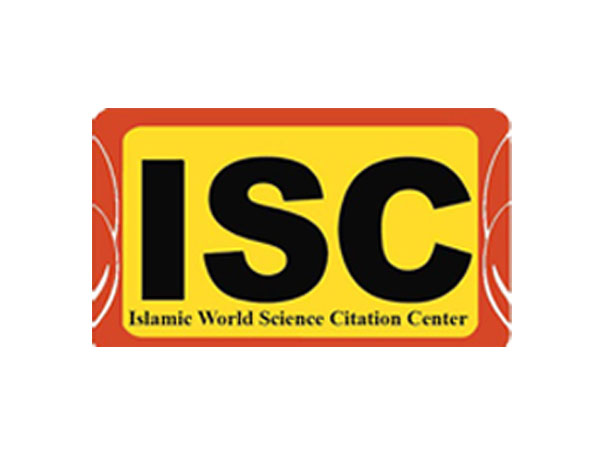About the journal
The Journal of Language, Culture, and Translation (LCT) is an open-access, editorial-reviewed, and, double-blind peer-reviewed academic journal published biannually by the English department at the Islamic Azad University, Shahreza Branch, both in electronic and printed forms. LCT is dedicated to the publication of contributive results obtained from excellent research on English language education and linguistics, literature, and Interpretation and translation. Drawing upon a pedagogical perspective, the journal welcomes any paper reporting any research project that is empirical, experimental, or conceptual in nature.
LCT adheres to the ethical guidelines set forth by the Committee on Publication Ethics (COPE) and upholds the highest standards of ethical conduct in accordance with applicable laws. All submitted manuscripts undergoe a thorough similarity check using Ithenticate or Turnitin software, to ensure the authenticity and originality of the manuscript and to ensure that the submitted articles are plagiarism-free.
LCT is licensed under a Creative Commons Attribution ![]() .
.
For inquiries, please contact us through the journal's emails (lct@iaush.ac.ir) (journaloflct@gmail.com) or through the following WhatsApp number: +989133228533
-
Open Access Article
1 - Construction and Development of a Questionnaire of Grammar Learning Strategies with a Focus on the Most and Least Utilized Strategies: Insights from Iranian EFL Learners
Ebrahim Zeinali ، Shahram Afraz * ، Fazlolah SamimiIssue 1 , Vol. 8 , Spring_Summer 2025 -
Open Access Article
2 - From Adaptation to Survival: Metaphoric Ecology in Translation and Language Systems
Ali Arjmandi * ، Mohammad Reza GaffariIssue 1 , Vol. 8 , Spring_Summer 2025 -
Open Access Article
3 - A Critical Discourse Analysis into Rhetoric and Ideology in Donald Trump’s 2024 Presidential Campaign: An Introduction to Vilification Theory
Sabaa Zaid Jawad Witwit ، Fatemeh Karimi * ، Salih Mahdi Adday Al-Mamoori ، Sahar NajarzadeganIssue 1 , Vol. 8 , Spring_Summer 2025 -
Open Access Article
4 - Reconfiguring Silence: Technological Mediation and Human Finitude in Ted Chiang’s Post-Cyborg Fiction
Samira Rezvan ، Hossein Moradi * ، Fatemeh BornakiIssue 1 , Vol. 8 , Spring_Summer 2025 -
Open Access Article
5 - Fluidity and Fragmentation: Stuart Hall’s Theory of Cultural Identity in A Song of Ice and Fire
Hadiseh Alishiri ، Hossein Moradi * ، Fazel Asadi AmjadIssue 1 , Vol. 8 , Spring_Summer 2025 -
Open Access Article
6 - The Effect of Learning-Oriented Assessment on EFL Learners’ Peer and Self-Rating Accuracy of Reading Comprehension Tasks: A Mixed-Methods Study
Pegah Doroudi ، Mohammad Taghi Farvardin * ، Ghafour Rezaie GolandouzIssue 1 , Vol. 8 , Spring_Summer 2025 -
Open Access Article
7 - Impact of Think-Pair-Share (TPS) and Flipped Approaches on EFL Learners' Listening Comprehension
Tooran Arghashi ، Bahman Gorjian * ، Seyyed Naser MousaviIssue 1 , Vol. 8 , Spring_Summer 2025 -
Open Access Article
8 - EFL Teachers’ Perspectives on Integration of the Brainling Model into Grammar Teaching: Opportunities and Challenges
Mohadese Karimi ، Neda Fatehi Rad * ، Valeh JalaliIssue 1 , Vol. 8 , Spring_Summer 2025 -
Open Access Article
9 - Tapping into Consecutive Interpreting Courses: A Comparative Study of Cathartic, Catalytic, and Supportive Interventions
Mohammad Fazli ، Ghasem Modarresi *Issue 1 , Vol. 8 , Spring_Summer 2025 -
Open Access Article
10 - A Structural Jazz Reading of The Love Song of J. Alfred Prufrock and Portrait of a Lady by T. S. Eliot
Abdolreza Ohadi ، Hassan Shahabi * ، Mehry Haddad NarafshanIssue 1 , Vol. 8 , Spring_Summer 2025 -
Open Access Article
11 - Bridging Technology and Vocabulary Development: Iranian EFL Learners’ Insights and the Comparative Effects of Adobe Connect and WhatsApp
Shiva Azizpour ، Masoumeh Pourcheragh *Issue 1 , Vol. 8 , Spring_Summer 2025 -
Open Access Article
12 - Social Justice in National University Entrance Exams: Insights from EFL Learners’ and Teachers’ Perceptions in Iran
Sanaz Behboudi ، Masood Siyyari * ، Gholam-Reza AbbasianIssue 1 , Vol. 8 , Spring_Summer 2025
-
Open Access Article
1 - A Qualitative Study of Reciprocal Scaffolding Techniques on Iranian EFL Learners' Views via Language Management System (LMS)
Marzieh Sabzevari ، Neda Fatehi Rad * ، Massoud TajaddiniIssue 2 , Vol. 5 , Autumn_Winter 2023 -
Open Access Article
2 - A Form-focused Translation Criticism: A Case Study of the Persian Translation of As I Lay Dying by Dara Bandari
Leila Alinouri * ، Hamed BadpaIssue 2 , Vol. 7 , Autumn_Winter 2025 -
Open Access Article
3 - The Impact of Explicit and Implicit Corrective Feedback on the Writing Proficiency of Iranian Pre-intermediate EFL Learners
Hamed Badpa * ، Esmail Zare-BehtashIssue 1 , Vol. 6 , Spring_Summer 2023 -
Open Access Article
4 - Translating Idioms: A Study on English Translation of The Date Palm
عبد المجید نصیری مقدم ، ندا فاتحی راد *Issue 1 , Vol. 4 , Spring_Summer 2021 -
Open Access Article
5 - Consecutive Interpreting in a Nutshell
حسین رحمان پناه *Issue 2 , Vol. 4 , Autumn_Winter 2022 -
Open Access Article
6 - Identity Construction and E-Learning: The Role of Virtual Teaching in EFL Learners’ Identity
آذر باقری مسعودزاده ، ندا فاتحی راد *Issue 2 , Vol. 4 , Autumn_Winter 2022 -
Open Access Article
7 - A TELL-Based TBLT in ESP Courses: Focus on Undergraduates’ Metacognitive Reading Comprehension Strategies
مهناز شعله ، محمد رضا طالبی نژاد * ، محسن شاهرخیIssue 2 , Vol. 4 , Autumn_Winter 2022 -
Open Access Article
8 - On the Relationship Between Foreign Language Classroom Anxiety and English Achievement
فرهاد قربان دردی نژاد *Issue 1 , Vol. 3 , Winter 2015 -
Open Access Article
9 - The Role of Explicit Corrective Feedback Timing in Second Language Structure Accuracy
سوری سلاجقه ، علی اکبر خومیجانی فراهانی * ، حسن شهابیIssue 2 , Vol. 4 , Autumn_Winter 2022 -
Open Access Article
10 - Exploring the Effect of Teacher-student and Student-student Rapport on Classroom Sense of Community and Students’ Classroom Engagement
Nima Yamrali ، Hamid Zarabi * ، Nadia GharaniIssue 1 , Vol. 5 , Spring_Summer 2022








